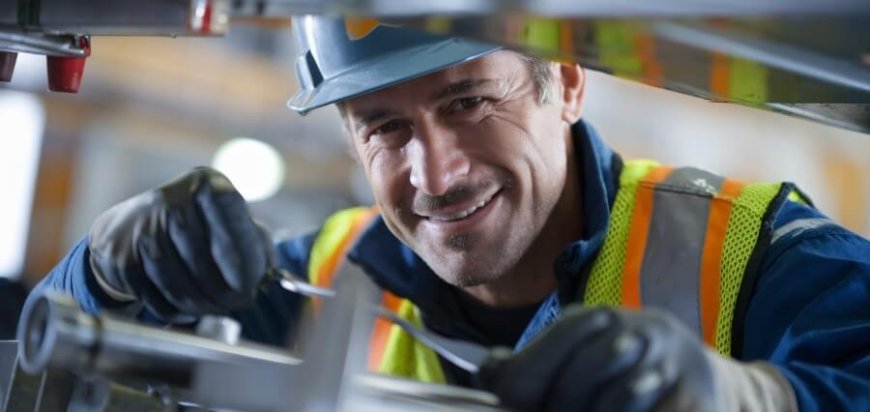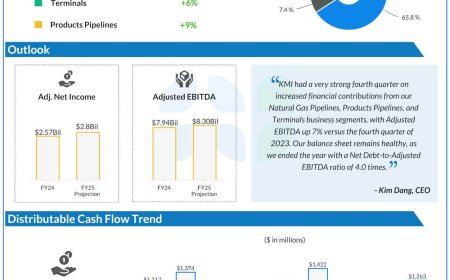Why Training and Upskilling are Key to the Future of Car Repairs?
Modern vehicles have transformed into advanced tech hubs, with over 70% of their components now electronic. Electric vehicles (EVs) bring unique challenges, including high-voltage systems, complex battery diagnostics, and software-driven maintenance. Mechanics can no longer rely solely on traditional repair skills. They must understand digital tools, advanced diagnostics, and intricate electrical systems. The demand for […] The post Why Training and Upskilling are Key to the Future of Car Repairs? appeared first on Insights Success.

Modern vehicles have transformed into advanced tech hubs, with over 70% of their components now electronic. Electric vehicles (EVs) bring unique challenges, including high-voltage systems, complex battery diagnostics, and software-driven maintenance. Mechanics can no longer rely solely on traditional repair skills. They must understand digital tools, advanced diagnostics, and intricate electrical systems.
The demand for skilled EV auto repair technicians is rising sharply, and a shortage of trained professionals threatens to stall this shift. Investing in upskilling and structured training programs is not just important—it’s the linchpin for a sustainable automotive future.
Why Upskilling is Essential for Mechanics
Technological Advancements
The newest innovations in automotive manufacturing have increased the complexity of car repairs. The impact of electric vehicles on the automotive industry has shifted the focus from mechanical repairs to technology-driven problem-solving. Without training, even experienced mechanics may struggle to perform basic diagnostics or repairs on EVs.
Customer Expectations
Car owners expect more from repair services than ever before. Advanced EV systems provide real-time diagnostics, and customers anticipate quick, precise solutions backed by data. Modern mechanics need to interpret digital readouts, address software glitches, and explain issues clearly to customers. An untrained technician risks costly misdiagnosis, which can lead to unnecessary repairs, damaged EV components, and dissatisfied customers.
Industry Competition
Auto repair shops that prioritize skilled EV mechanics are already outperforming those that don’t. Fleet operators and EV owners actively seek certified professionals who can guarantee safe and efficient repairs. Technicians trained in EV technologies bring value to repair businesses, making them more attractive in a competitive field.
Regulatory Changes
Governments are tightening safety and environmental regulations around EV maintenance and repairs. Battery handling, software security, and energy efficiency now come with mandatory compliance standards. Mechanics must understand these rules and know how to apply them in their day-to-day work. In a car accident case involving an EV, improperly handled battery systems or failure to meet safety protocols can lead to severe consequences, including legal liability for the repair shop.
Key Areas for Upskilling
Auto glass repair technicians must master new technical and soft skills to stay relevant in an evolving automotive industry. The following are some key areas for upskilling to avoid running the risk of getting left behind:
- Electric Vehicles (EVs)
Mechanics must understand EV battery systems, charging infrastructure, and high-voltage safety protocols. Handling lithium-ion batteries and managing thermal systems require precision and specialized training to avoid safety hazards and ensure optimal performance.
- Diagnostics and Software
Advanced onboard software systems now control most vehicle operations. Mechanics must train on digital diagnostic tools, firmware updates, and cloud-connected systems. Misinterpreting software logs or skipping updates can lead to recurring issues and costly repairs. - Sustainability Practices
The automotive industry emphasizes environmental responsibility, and repair shops must follow suit. Mechanics need knowledge of eco-friendly repair materials, battery recycling processes, and sustainable waste management practices to minimize environmental impact. - Customer Relations
EV customers often need help understanding their vehicles’ technology. Clear communication, simplified explanations, and transparency in repair processes improve customer satisfaction and build long-term trust. Addressing electric vehicle myths, such as misconceptions about its climate impact, also plays a key role in educating customers and setting accurate expectations. - Cybersecurity
Connected cars are vulnerable to cyberattacks. Mechanics must understand vehicle cybersecurity protocols, safeguard onboard systems, and prevent unauthorized access to sensitive data.
Benefits of Investing in Training
The shift toward electric vehicles (EVs) has made specialized training essential for mechanics, businesses, and the automotive industry. Investing in training programs delivers measurable benefits across multiple levels:
For Mechanics
- Mechanics with EV certifications secure higher salaries and better job opportunities.
- Specialized training opens pathways to long-term career growth and stability.
- Skilled mechanics experience greater job satisfaction due to increased confidence in handling complex repairs.
For Businesses
- Shops with trained EV mechanics reduce costly repair errors and avoid repeat visits.
- Efficient repairs lead to faster turnaround times and improved customer satisfaction.
- Certified mechanics attract more clients, enhancing a shop’s reputation and customer loyalty.
For the Industry
- Training programs close the growing skills gap caused by the rapid adoption of EVs.
- A qualified workforce ensures compliance with evolving safety and environmental regulations.
- Standardized training raises the overall quality of automotive repair services, driving industry-wide improvements.
Implementing Training Programs
Effective training programs bridge the skills gap in EV auto repairs, ensuring mechanics stay prepared for emerging technologies. Successful implementation relies on a combination of structured learning formats and ongoing professional development.
- Formal Training
Certification programs and partnerships with vocational schools focus on emerging fields like electric drivetrains, regenerative braking systems, and integrated vehicle sensors. Online courses offer flexible options for mechanics to stay updated without disrupting their workflow. - On-the-Job Learning
Hands-on mentorship programs allow mechanics to shadow experienced professionals, gaining experience with real repair scenarios, system recalibration techniques, and specialized diagnostic tools. This approach builds confidence and reinforces classroom knowledge through practical application. - Continuous Education
Industry conferences, manufacturer-led workshops, and webinars offer exposure to cutting-edge tools, updated repair protocols, and case studies on real-world challenges. These platforms also provide networking opportunities and valuable insights into global best practices. - Incentives for Upskilling
Businesses can motivate mechanics by offering financial bonuses, promotions, or certification reimbursements for completing advanced training programs. Incentives create a culture where skill development becomes a shared priority.
The Future of Car Auto Repairs
The automotive repair industry stands at a turning point. Electric vehicles, AI diagnostics, and connected technologies have reshaped the skills that mechanics need, demanding continuous adaptation. To keep pace, collaboration between manufacturers, training institutions, and repair shops is essential for aligning skills with evolving technologies and safety protocols.
Repair shops must act now by prioritizing training investments, while mechanics need to embrace ongoing skill development. Together, these efforts will build a workforce capable of meeting the demands of innovation and securing the future of car repairs.
The post Why Training and Upskilling are Key to the Future of Car Repairs? appeared first on Insights Success.











































